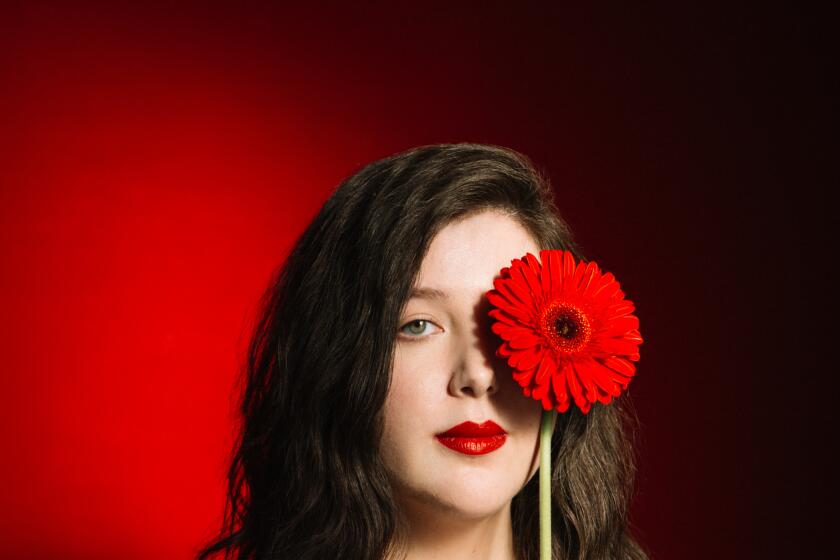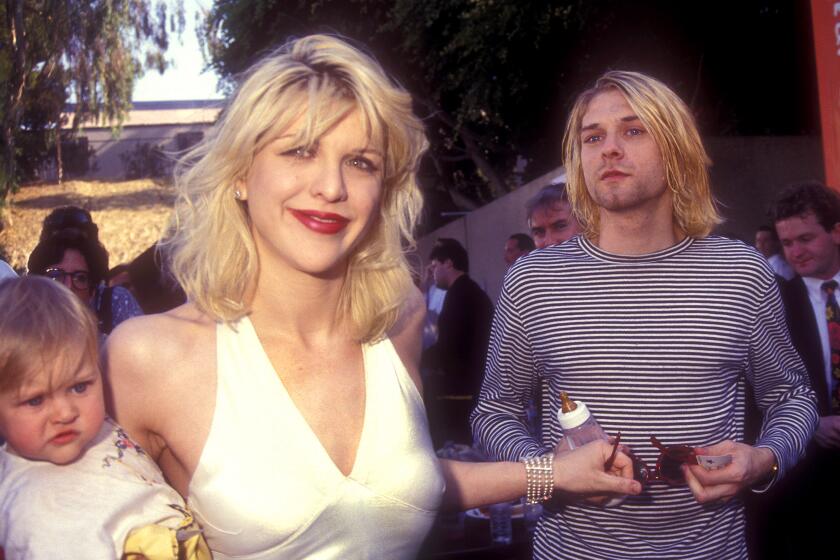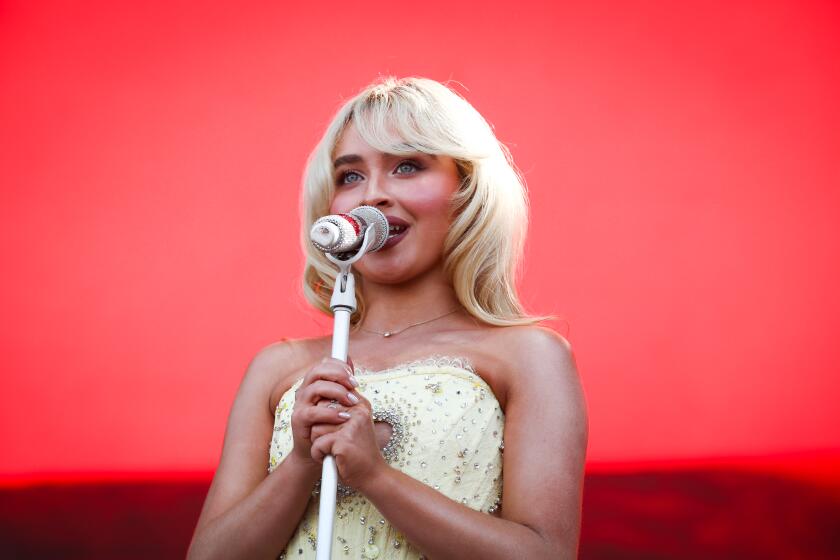Review: Beck celebrates his many guises at homecoming show
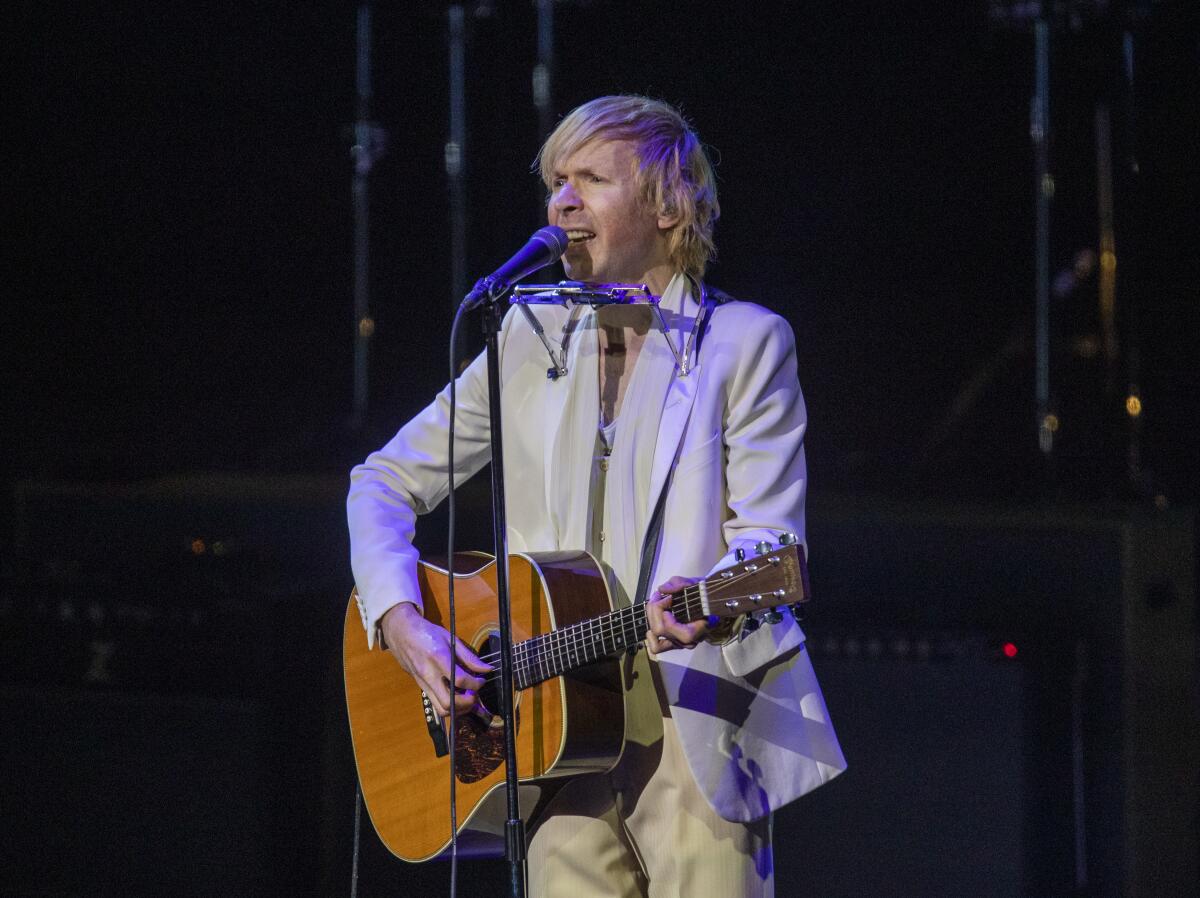
Beck had time on his mind as he began his concert Tuesday night at the Ford.
“This is our first show with a band in almost two years,” he told the crowd after he sauntered onstage, stylish white suit draped loosely on his slender frame. “I feel like when Sasquatch walks out of his cave, stunned by daylight.”
Later, the alt-rock auteur rummaged through his memories for “Cyanide Breath Mint,” a low-affect oldie he described as “protest music from the ’90s, when we had nothing to protest.”
Yet Beck was also thinking about place at the Ford, which wasn’t just his first proper gig since the start of the COVID-19 pandemic; more important, the concert was a hometown affair for the 51-year-old Angeleno, who grew up not far from the outdoor venue tucked into the Cahuenga Pass.
“It’s been a while since I played my own neighborhood,” he said — just the reason to update his song “Nitemare Hippy Girl” with a joke about Erewhon (rhymes with “heroin”) and to make a call-and-response bit of the words “Zankou Chicken” in “Debra.”
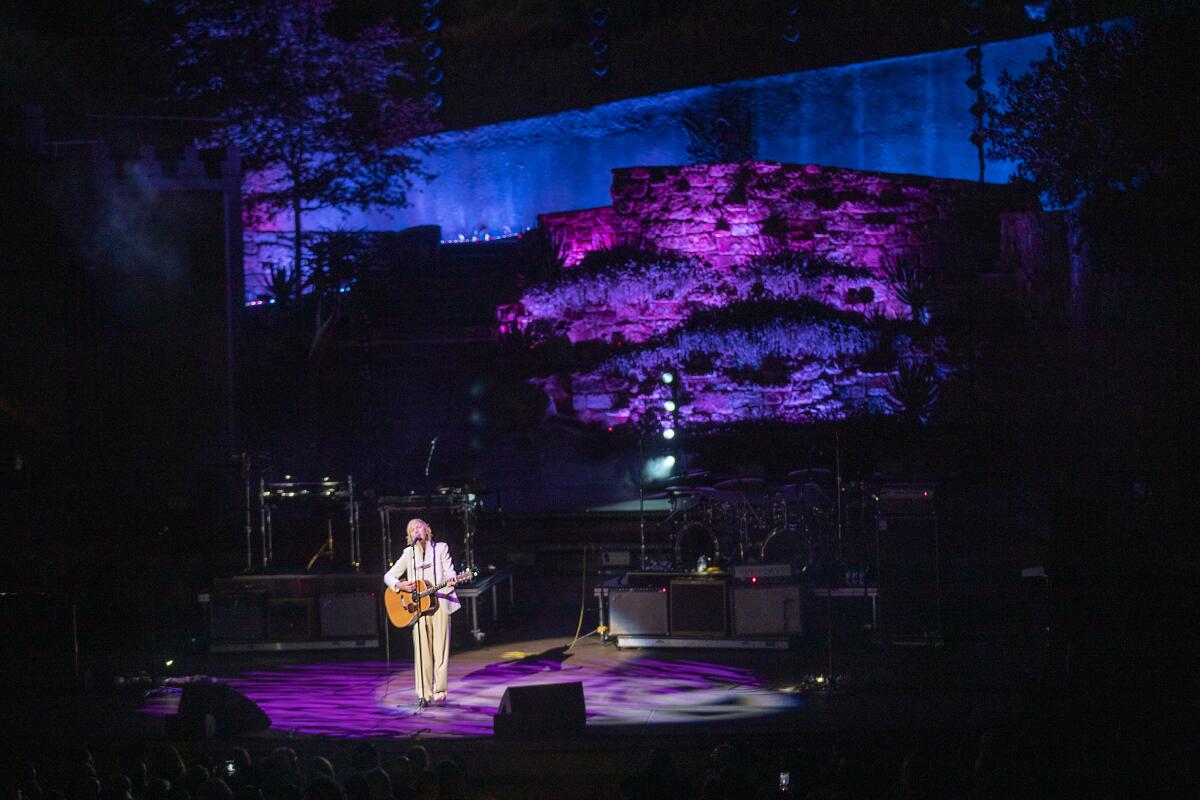
Before “Hollywood Freaks,” the singer pointed out that he doesn’t usually play the creeping funk tune from 1999’s “Midnite Vultures” album. But he could tell “we got some in the house,” he added. “So let’s cruise down the 101.”
Is anyone prouder to be from Los Angeles than Beck? Since he broke out nearly three decades ago with “Loser,” his instant-classic folk-rap hit, he’s used his wildly eclectic music to embody something of the variety of this city — its endless array of attitudes, identities and lifestyles. He’s made sample-based hip-hop and “real”-instrument soft rock, bleepy electronica and satin-sheets R&B; he’s sung about the streets of East L.A. and the moneyed vistas of Malibu.
And, crucially, he’s never implied any kind of hierarchy in his work, which scrambles ideas about depth and shallowness in a way that could happen only in a town where prestige is no match for success.
When Beck won a Grammy for album of the year with 2014’s introspective “Morning Phase,” his next move was to record a trendy trap-style song, “Wow,” that ended up in a car commercial and one for an electric toothbrush.
For her new album, singer-songwriter Lucy Dacus combed through her teenage journals to gain perspective on her Christian upbringing and sexuality.
At the Ford, where Beck started his set in solo-acoustic mode before being joined by a muscular five-piece band, he offered a survey of his catalog, putting quirky hits like “The New Pollution” and “Debra,” the latter of which he dedicated to “all the romantic people from Glendale,” up against deep cuts such as “A—hole,” which conjured a broken-down version of the Eagles’ mellow country-rock. He also did a tender rendition of “I Am the Cosmos” by Chris Bell of the cult-fave power-pop band Big Star.
Beck’s job was making all this stuff cohere despite the rust he said had collected during his time off the road. But if he and his players weren’t quite as sharp as they were pre-pandemic, the increasingly genre-less nature of American pop means it’s easier than it used to be to get an audience to go along with a jolting transition like Beck’s from the trippy “Waking Light” to the swinging “Devil’s Haircut.”
Occasionally on Tuesday, he’d do something to make you think of him as having set the table for such hard-to-classify artists as Lil Nas X and Post Malone — the ease with which he switched between rapping and singing in “Qué Onda Guero,” for instance, or how fluidly he and the band blended synthetic and hand-played elements in “Dreams.”
Courtney Love talks with Kurt Cobain biographer Charles R. Cross about the still-resonant depths of her late husband’s breakthrough 1991 album, ‘Nevermind.’
Other times, he was merely opening a time capsule, reminding you of that weird moment in the ’90s when his popularity gave rise to an unlikely mini-wave of goofy white sort-of-rap groups including Cake, Len and Bran Van 3000. Having come to peace years ago with “Loser,” Beck here performed the song with admirable gusto until he came to the lyric about “getting crazy with the Cheez Whiz,” which seemed to pain him ever so slightly.
The concert ended with “Where It’s At,” Beck’s big hit about rocking “two turntables and a microphone” from 1996’s “Odelay.” Or at least it started to end that way: Halfway through “Where It’s At,” the singer scampered up into the hills behind the Ford’s open-air stage, where he proceeded to narrate his exploration of a little piece of L.A. previously unknown to him.
“I think this connects to Runyon Canyon,” he said after a few minutes of poking around in the brush. “OK, I don’t wanna be rude. I’m gonna come back to my own show.”
More to Read
The biggest entertainment stories
Get our big stories about Hollywood, film, television, music, arts, culture and more right in your inbox as soon as they publish.
You may occasionally receive promotional content from the Los Angeles Times.
